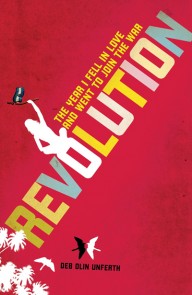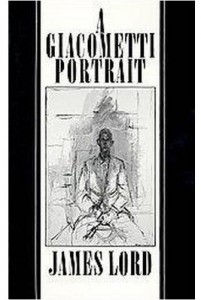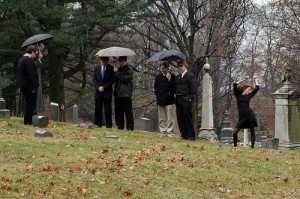6 Books: Deb Olin Unferth on Nonfiction
 In this week’s installment of 6 Books, Deb Olin Unferth, author of the brilliant, laconic memoir Revolution, recommends 6 nonfiction books. Here are her picks:
In this week’s installment of 6 Books, Deb Olin Unferth, author of the brilliant, laconic memoir Revolution, recommends 6 nonfiction books. Here are her picks:
To After That (Toaf) by Renee Gladman
It’s a book dedicated to a book she has written: what is a cooler premise than that?
Parrots for Dummies by Nikki Moustaki
Yes, from the Dummies series, a simple how-to book: feeding, cleaning the cage, etc., but stay with me here. I found the book very moving. Her portrait of the parrot is of a tragic figure in a cage—it feels almost Kafkaesque. She captures the personality of the parrot as a beautiful, complex, panicky person who you’d do anything for in hopes that it’ll fall in love with you. And there’s also the sadness of the author, who you can tell is struggling: she has to write about clipping, though she mostly hates it. She has to talk about breeding though she thinks it’s a terrible idea. She includes pictures of birds flying in the Amazon—there, isn’t that beautiful? Isn’t that where they belong? They fly a hundred miles a day out there, while here they can move only a few feet. Which is better for them, do you think? she wonders.
Changing My Mind by Zadie Smith
This book has shown up on so many lists now that it’s almost like putting Consider the Lobster on this list. But I’m including it here because you know what? Zadie Smith is a badass.
The Autobiography of Alice B. Toklas, by Gertrude Stein
 This may be my favorite book of all time. This is the book that made all my short shorts possible, that made my memoir, Revolution, possible. I first read it riding a train to Chicago and I’ve never been the same. How to write about war and make it funny. How to write about furniture and make it sad.
This may be my favorite book of all time. This is the book that made all my short shorts possible, that made my memoir, Revolution, possible. I first read it riding a train to Chicago and I’ve never been the same. How to write about war and make it funny. How to write about furniture and make it sad.
A Giacometti Portrait, by James Lord
For Lord—who agreed to sit for a portrait for Giacometti—what initially seemed like a pleasant afternoon turned into an existential nightmare, as Lord discovered just what “finishing” a portrait meant to Giacometti.
Atlas of Remote Islands, by Judith Schalansky
How can descriptions of islands far, far away—islands that I’ll never visit, islands that the author has never visited—feel so lonely?
ZSNYRB
Zadie Smith writes with mixed feelings and a note of condescension in the New York Review of Books about The Social Network, a movie I saw four times in the theater. (Enough times to know that she misquotes the dialogue.) From the opening scene it’s clear that this is a movie about 2.0 people made by 1.0 people, she writes, and it does its job so well that it feels more delightful than it probably, objectively, is. Mercifully she ignores the tedious controversy over the film’s alleged misogyny in favor of a nuanced analysis of its generational significance. Remember half a decade ago, when you’d meet someone and one of you would say, “Are you on Facebook?”
I’m Scared; Happy Birthday to Google
And the fact that I’m wishing Google a happy birthday only frightens me more.
I don’t believe society understands what happens when everything is available, knowable and recorded by everyone all the time,” he says. He predicts, apparently seriously, that every young person one day will be entitled automatically to change his or her name on reaching adulthood in order to disown youthful hijinks stored on their friends’ social media sites. — Google CEO or whatever
Excited, but not to a Grave-Dancing degree
In ’08 when I got a galley of Reality Hunger, it was pretty clear that the book was going to rouse a little rabble when it came out. After I read it for a grad school class, I invited David to speak on a panel discussion I was putting together and I got to speak to him a little about the book and later did an interview. David also asked me to ferry a copy of the book out to the iceberg where Zadie Smith lives to hand a copy of the book to Zadie Smith, who was teaching at my university that year. I managed to get it the book into her hands, albeit blushing heavily. (I do admire her, despite suspecting her blood might run metallic and cold.) My bet was that she was going to enjoy the manifesto, though not necessarily agree with its every platitude.
When Zadie’s strange review in The Guardian came out, I was surprised to have been mentioned in it as the “excited American writing student,” and the implication that my peers and I are dancing on the grave of the novel. (I would link to the article but it’s not up on their site anymore. Here’s something I wrote about it a while ago.) In fact, Professor Smith, I am not dancing on the grave of anything, especially not the novel.
So after reading Zadie’s essay, Lincoln Michel’s really smart review on The Rumpus and Sam Anderson’s funny but annoyed review in New York Magazine, I feel like I need to say something in Reality Hunger’s defense. READ MORE >
March 18th, 2010 / 5:35 am
No Easy Cure for Novel-Nausea
 Zadie Smith has a long essay in The Guardian that is half about David Shields’s forthcoming, Reality Hunger: A Manifesto, and half about her own frustration with novel writing. Go read it. It’s longish, but it is completely worth the time. I am not going to include an excerpt here. Once you’ve read all of it, read the rest of this entry. READ MORE >
Zadie Smith has a long essay in The Guardian that is half about David Shields’s forthcoming, Reality Hunger: A Manifesto, and half about her own frustration with novel writing. Go read it. It’s longish, but it is completely worth the time. I am not going to include an excerpt here. Once you’ve read all of it, read the rest of this entry. READ MORE >

